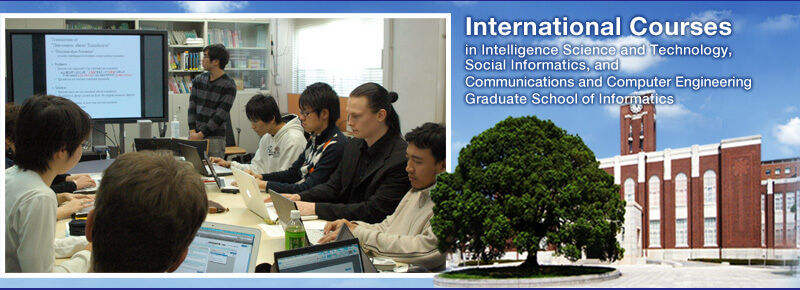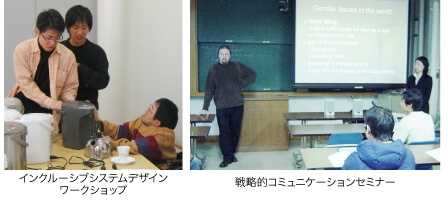
The International Course program offers new courses taught in English, and provides some of the existing courses in English as well, in order to allow students to acquire master’s and doctoral degrees using only English.
K.U.PROFILE; the Global 30 Project at Kyoto Univ.
International Courses in Graduate School of Informatics

Global COE Program set up four new education and research core areas: 1) Primordial Knowledge Model; 2) Field Informatics; 3) Knowledge Search; and 4) Knowledge Grid Computing (Project leader: Professor Katsumi TANAKA). The department of social informatics has worked in two core areas, Knowledge Search and Field Informatics. The Knowledge Search education and research core will focus its education and research programs on new search engines that can be used to search for reliable knowledge from various information sources, and the associated social systems and business models. The Field Informatics education and research core will focus on methodologies to build social information systems, based on collaboration with experts in the field.
Global COE “Informatics Education and Research Center for a Knowledge-Circulating Society”

This initiative set up education programs aimed to train people capable of designing information systems in close cooperation with society. In FY2006, the initiative held the practical Field Informatics Seminar and the Strategic Communication Seminar where students learned to apply their knowledge to practical applications (via courses conducted in Japanese and English). The Field Informatics Seminar included information MOT lectures, as well as several small-scale lectures held at a traditional Japanese house in Kyoto. The Strategic Communication Seminar had both Japanese and English courses. The English course, developed in cooperation with Berlitz, was for graduate students with linguistic abilities. The course content (including presentations, interviews and debates) was designed to raise the students’ communication skills. Students participated in the seminar in small groups. Patterned along similar lines, the Japanese course, developed in cooperation with the NHK Communications Training Institute, was for graduate students who already had adequate technical ability but needed to sharpen their communication skills.
